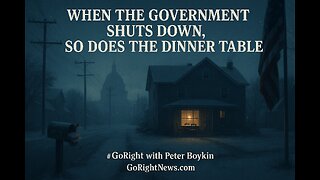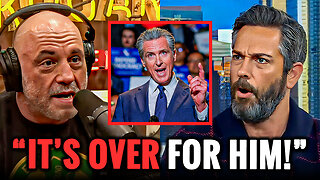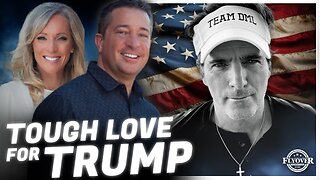Premium Only Content

Free Speech on The Internet Hangs on Section 230 Of the COMMUNICATIONS DECENCY ACT
WHAT IS SECTION 230 OF THE COMMUNICATIONS DECENCY ACT
Twenty-six words tucked into a 1996 law overhauling telecommunications have allowed companies like Facebook, Twitter and Google to grow into the giants they are today.
Free Speech on The Internet Hangs on Section 230 Of the COMMUNICATIONS DECENCY ACT
Under the U.S. law, internet companies are generally exempt from liability for the material users post on their networks.
Section 230 of the 1996 Communications Decency Act - itself part of a broader telecom law - provides a legal 'safe harbor' for internet companies.
But Republicans increasingly argue that Twitter, Facebook and other social media platforms have abused that protection and should lose their immunity - or at least have to earn it by satisfying requirements set by the government.
Section 230 probably can't be easily dismantled. But if it was, the internet as we know it might cease to exist.
Just what is Section 230?
If a news site falsely calls you a swindler, you can sue the publisher for libel. But if someone posts that on Facebook, you can't sue the company - just the person who posted it.
That's thanks to Section 230, which states that 'no provider or user of an interactive computer service shall be treated as the publisher or speaker of any information provided by another information content provider.'
That legal phrase shields companies that can host trillions of messages from being sued into oblivion by anyone who feels wronged by something someone else has posted - whether their complaint is legitimate or not.
Section 230 also allows social platforms to moderate their services by removing posts that, for instance, are obscene or violate the services' own standards, so long as they are acting in 'good faith.'
What happens if Section 230 is limited or goes away?
'I don´t think any of the social media companies would exist in their current forms without Section 230,' Kosseff said. 'They have based their business models on being large platforms for user content.'
There are two possible outcomes:
Platforms might get more cautious.
This outcome could actually hurt none other than the president himself, who routinely attacks private figures, entertains conspiracy theories and accuses others of crimes.
Another possibility: Facebook, Twitter and other platforms could abandon moderation altogether and let the lower common denominator prevail.
-
 4:33
4:33
Go Right News with Peter Boykin
2 hours agoWhen The Government Shuts Down So Does the Dinner Table
4 -
 8:47
8:47
Hollywood Exposed
9 hours agoJoe Rogan and Zachary Levi DESTROY Gavin Newsom’s Lies About California
13.6K3 -
 DVR
DVR
BlackDiamondGunsandGear
3 hours agoInside NEW Glock V Models / Whats Next? / You giving up Glock?
15.5K2 -
 2:05:31
2:05:31
Glenn Greenwald
8 hours ago"Former" Al-Qaeda Leader Welcomed to the White House; The "New TikTok" Clamps Down on Israel Critics: With Influencer Guy Christensen; Dave Portnoy Decries Cancel Culture, Unless His Group is Under Attack | SYSTEM UPDATE #545
130K64 -
 7:30:07
7:30:07
Spartan
9 hours agoNine Sols
11.4K1 -
 2:34:56
2:34:56
SOLTEKGG
4 hours ago🔴 HUGE UPDATE - Veterans Day | Redbull x Dogtag Giveaway
11.9K1 -
 1:23:36
1:23:36
Flyover Conservatives
13 hours agoTough Love for Trump: What Must Change Now to Win Back America - Dennis Michael Lynch | FOC Show
22K4 -
 1:56:43
1:56:43
The White House
5 hours agoAbove, Below & Beyond: A Presidential Special
31K16 -
 1:12:44
1:12:44
Sarah Westall
5 hours agoYounger Brains Have Changed! Human Beings are Different Now w/ Neurologist Dr Jack McCallum
19.9K8 -
 2:24:49
2:24:49
megimu32
4 hours agoON THE SUBJECT: The Movies That Made Millennials — And the Ones That Missed 🎥
16.5K6